Book banning is one of the first signs that a democracy is losing its way, dragging behind it the scorpion’s tail of ignorance and intolerance.
Full disclosure? To paraphrase Willie Nelson, my heroes have always been writers, and they still are, it seems.
Shakespeare, Milton, Keats, Dickens, Yeats, Joyce, Hemingway, Fitzgerald, Faulkner, Steinbeck, Orwell, Greene, Pynchon, Styron, Mowat, Findley, Richler and Atwood — just a few members of the word royalty that has both delighted and tutored me.
All that beauty and truth is at risk in what is supposed to be the zenith of the Information Age. How perverse. In tandem with the shift toward authoritarianism in politics, there is a growing impulse to suppress intellectual freedom with the banning, or shadow banning, of books. Anyone who doubts that has only to look at what is happening in the United States, the self-styled greatest democracy in the world.
Strange. The linchpin of democracy used to be freedom of speech. Ironically, the most banned book of all time in America is 1984, George Orwell’s prophetic masterpiece.
The American Library Association says attempts to ban or restrict books in 2023 were “the highest in the last 20 years.”
According to the network news show 60 Minutes, over 3,000 books were banned in public schools in the United States last year. Texas and Florida led the way. In the Lone Star State, they have devised another way to skew information. In Texas schools, each book about climate change requires the library to stock another with the opposite point of view. Despite the science, it’s equal time for climate change deniers in Texas.
In several states, politicians and parents get to make the call on what students can and can’t read. It’s easy to object to a particular book, and even easier to find like-minded people on the internet to organize its banning. It fits in with the anti-elite and authoritarian impulse currently polarizing U.S. politics.
Moms for Liberty has worked in Texas and Florida to organize banning books around LGBTQ2S+ issues, in lockstep with Gov. Ron DeSantis and his “Don’t Say Gay” law. According to Moms for Liberty, Canadian parents have reached out to the organization to set up new chapters in this country.
Canada has a better record than the United States when it comes to book bans, largely because Canadians have traditionally resisted attempts to take books off the shelf. In this country, professional librarians, teachers and school boards are still holding the line against efforts to reduce access to works of literature for future generations of readers.
The Vancouver Public Library, for example, is guided in its book choices by the Universal Declaration of Human Rights and the belief that “individuals have the right to access all expressions of knowledge.”
But there is reason for caution. Forty years ago, there was an uproar about Ontario high school seniors reading Margaret Laurence’s The Diviners. Published in 1974, the novel won a Governor General’s Award for fiction. That didn’t stop fundamentalist Christian groups from deeming the work to be blasphemous and obscene. As a result, several schools banned Laurence’s masterpiece.
In what has become known as the Surrey Book Case of 2002, the Supreme Court of Canada ruled that the Surrey school district was wrong to ban three children’s books that depicted same-sex marriages in a favourable way. The court ruled that “tolerance is always age appropriate.”
The same district recently pulled four books from the recommended reading lists for grades 10 and up, including the Pulitzer Prize-winning To Kill A Mockingbird by Harper Lee and Of Mice and Men by Nobel laureate John Steinbeck.
The review of the books by a panel of 12 teachers was triggered by feedback from parents and others in the community. To Kill a Mockingbird was found to portray Black characters as one-dimensional, and the N-word was used in the text. That was found to be “completely offensive and inappropriate.”
The district made clear that the books were not being banned. They are still available in school libraries. But the decision to drop them from the reading lists was made because some students “didn’t feel safe” in the classroom. As Jason Ellis, a University of British Columbia professor of education, explained, “Young people who are Black, and other IBPOC youth, will not be asked to read the ‘n-word’ over and over to get through an assigned text.”
Despite the caveat, this has the effect of shadow banning. Once you officially find that a book is in some way offensive, the clear message is that there is something wrong with it.
It is notable that the premier of B.C. got it right. David Eby called the decision to remove To Kill a Mockingbird from recommended reading lists “crazy.” He described the novel as a “beautiful” and a “profoundly anti-racist” book. Interestingly, when Truman Capote needed some help on his masterpiece In Cold Blood, he turned to Harper Lee.
The list of frequently banned and challenged books in Canada includes The Handmaid’s Tale by Margaret Atwood, Of Mice and Men by John Steinbeck, The Apprenticeship of Duddy Kravitz by Mordecai Richler, The Diviners by Margaret Laurence, The Satanic Verses by Salman Rushdie and The Wars by Timothy Findley. That novel won a Governor General’s Award.
Atwood’s 1985 novel The Handmaid’s Tale was banned by the school board in Madison County, Virginia, in 2023, after Gov. Glenn Youngkin signed legislation allowing parents to veto teaching material they considered sexually explicit.
Atwood was perplexed, noting, “My book is much less sexually explicit than the Bible.” The list of “unacceptable” books that inspired the school board to ban her book was prepared by the Christian conservative group Focus on the Family.
In fact, Atwood explained that the inspiration for the book was in part biblical — “Beware of false prophets, who come to you in sheep’s clothing but inwardly are ravenous wolves” (Matthew 7:15). And then there is Genesis Chapter 30, where the handmaids of Rachel and Leah are turned over to Jacob for breeding purposes.
Atwood tried and failed to burn a copy of The Handmaid’s Tale. It was a fireproof edition, and she used a flame-thrower on it. Atwood and her publisher, Penguin Random House, created the fireproof edition, which was later auctioned at Sotheby’s for $130,000. The proceeds were donated to PEN America.
The book is a favourite target of those who want to forbid certain books, and has become a symbol of the modern movement “to stifle literary expression.” Meanwhile, Atwood’s brilliant dystopian novel has formed the basis of a TV series and been translated into over 40 languages.
Atwood says her novel is an exploration of the theoretical question, “What kind of totalitarianism might the United States become?” The book deals with a future repressive, religious state in the U.S., with men in charge of everything, including subjugated handmaids.
With Roe v. Wade struck down and abortion now a crime in several states, there is further talk among Republican politicians of “monitoring” women’s pregnancies to make sure they are obeying the law. It is time to read Atwood’s book in America, not ban it.
Learn from history
Book banning has ancient roots. During the Qin dynasty in China, in 213 BCE, books that were considered incorrect or subversive were burned. The scholars were killed, possibly by being buried alive.
Shortly after Adolf Hitler passed legislation in 1933 that put him above the law, even if he violated the German Constitution, the National Socialists began compiling their first list of books “deserving to be burned.”
In May 1933, Nazi propagandist Joseph Goebbels organized a huge bonfire of books at Berlin University. The books were deemed to be “unacceptable to the party.” Students danced around the fire as they tossed books into the flames: great works by Thomas Mann and Einstein, H.G. Wells, Freud, Zola and Proust. Book burnings took place in 34 university towns and cities in Germany. The regime also raided bookstores and libraries to confiscate “un-German” material.
How bad can book bans get? Very bad indeed.
James Joyce’s Ulysses, arguably the best novel ever written, was illegal to own in most of the English-speaking world for more than 10 years after its publication, including in the author’s native country, Ireland. It was banned, burned and demonized as lewd and offensive. That all changed in 1933 when Judge John M. Woolsey ruled that Ulysses featured unusually direct language but was not obscene. Instead of seeing the leer of the pornographer, the wise judge saw the hand of an artist.
In many ways, the first defence of freedom of expression in publishing, John Milton’s Areopagitica, is still the best one. Back in 1644, Milton was against the licensing of books, which he saw as a pre-publication form of censorship. And censorship, he argued, leads to political repression. He passionately advocated for the widest possible latitude for students and teachers to express themselves and the right to read. Centuries later, his words have a remarkably modern resonance and relevance.
“Give me the liberty to know, to utter, and to argue freely... above all liberties. A good book is the precious lifeblood of a master spirit, embalmed and treasured up on purpose to a life beyond life.... He who kills a man kills a reasonable creature.... He who destroys a good book kills reason itself.”
And that is truly Paradise Lost. ![]()
Read more: Books, Rights + Justice, Politics, Education
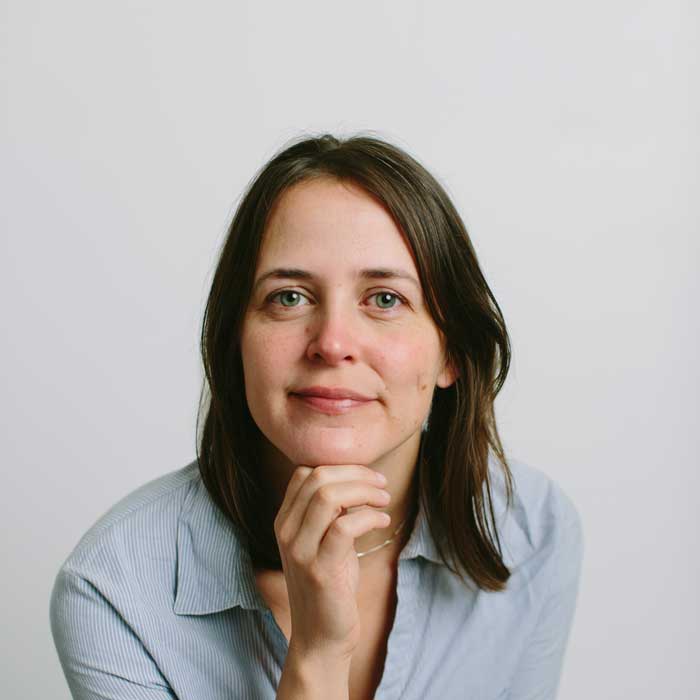



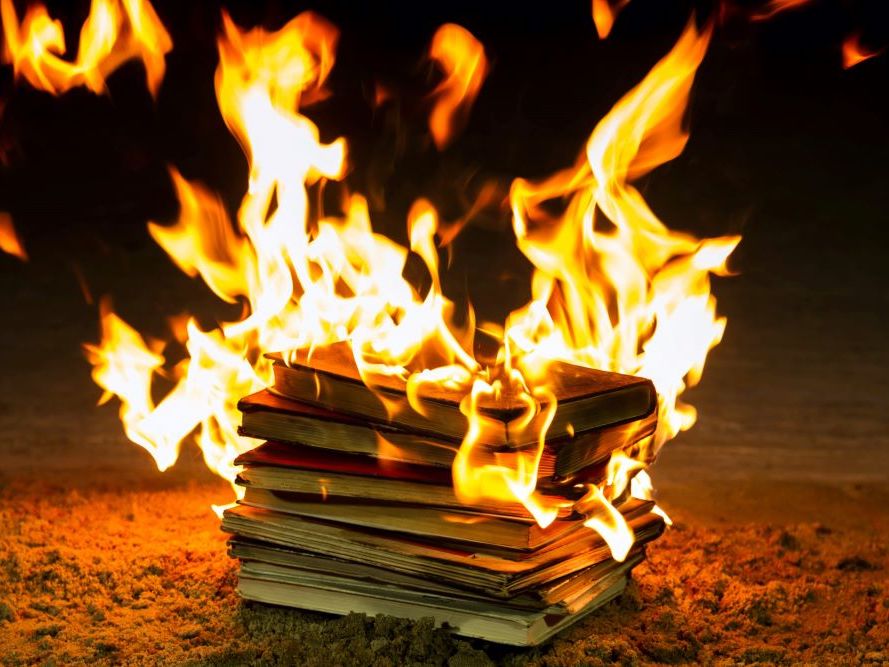



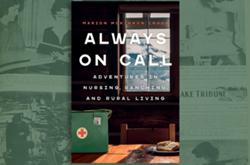

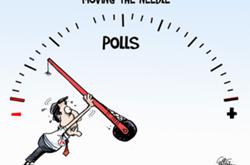



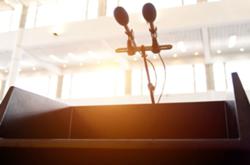
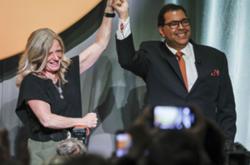
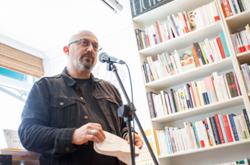
Tyee Commenting Guidelines
Comments that violate guidelines risk being deleted, and violations may result in a temporary or permanent user ban. Maintain the spirit of good conversation to stay in the discussion and be patient with moderators. Comments are reviewed regularly but not in real time.
Do:
Do not: